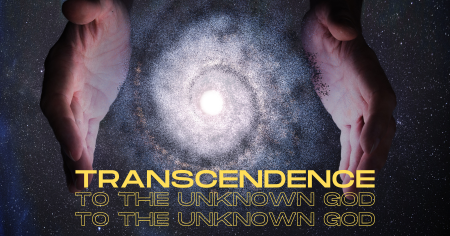Bulletin

Wise Counsel
Thursday, July 20, 2023
“The way of man is not in himself; it is not in man who walks to direct his own steps” (Jeremiah 10:23). This takes humility to accept. The world has rejected this view of life. It is considered demeaning to depend on the guidance of another. Weakness and inferiority is displayed in the pursuit of counsel. Yet, competence is not the ability to live life without guidance but understanding the need for it. An incompetent man is one molded entirely by his own preconceived notions separate from any objective truth. Satan lies about an ability to govern self – “The way of man is not in himself.” While we can be tempted to view ourselves as an exception to the rule, we must maintain perspective – everyone needs wise counsel!
 The ultimate source of wise counsel is the revealed word of God. This must not be viewed as a way to justify decisions already made, but as an avenue of communication from God to us in which we can appeal to His divine wisdom. In approaching God’s word, there must be a predisposition toward it. Like the Bereans who were “more fair-minded than those in Thessalonica, in that they received the word with all readiness, and searched the Scriptures daily to find out whether these things were so” (Acts 17:11). The response to the wisdom of God’s word should be full and immediate acceptance, as it is the best way to live. This mindset should take place before delving into the truth. For the wisdom of God cannot be filtered by the wisdom of man. Otherwise, it is no longer God’s wisdom. The Psalmist understood this when he wrote, “Blessed is the man who walks not in the counsel of the ungodly…but his delight is in the law of the Lord, and in His law he meditates day and night” (Psalm 1:1-2). No man is truly blessed separate from adherence to God’s divine word. For, the all of man is to fear God and keep His commandments (cf. Ecclesiastes 12:13).
The ultimate source of wise counsel is the revealed word of God. This must not be viewed as a way to justify decisions already made, but as an avenue of communication from God to us in which we can appeal to His divine wisdom. In approaching God’s word, there must be a predisposition toward it. Like the Bereans who were “more fair-minded than those in Thessalonica, in that they received the word with all readiness, and searched the Scriptures daily to find out whether these things were so” (Acts 17:11). The response to the wisdom of God’s word should be full and immediate acceptance, as it is the best way to live. This mindset should take place before delving into the truth. For the wisdom of God cannot be filtered by the wisdom of man. Otherwise, it is no longer God’s wisdom. The Psalmist understood this when he wrote, “Blessed is the man who walks not in the counsel of the ungodly…but his delight is in the law of the Lord, and in His law he meditates day and night” (Psalm 1:1-2). No man is truly blessed separate from adherence to God’s divine word. For, the all of man is to fear God and keep His commandments (cf. Ecclesiastes 12:13).
The source of heavenly wisdom also unveils the value in seeking wise counsel from learned, and seasoned elders. Advice given from an “I’ve been there before” standpoint is highly devalued among many. Youth cling to the erroneous idea that spiritual decisions and problems change with technology and culture. Grandpa may not have had an air conditioner and a television, but his experiences while striving to live for God can be a tremendous help to his grandchild who is having to consider the same options. It is foolish to seek wisdom in experiencing mistakes. Yes, one will make mistakes, and one must learn from them – wisdom is gleaned. However, it is prudent to consider counsel from the wise, and learn from their experiences. “My son, hear the instruction of your father, and do not forsake the law of your mother; for they will be a graceful ornament on your head, and chains about your neck” (Proverbs 1:8-9).
“That which has been is what will be, that which is done is what will be done, and there is nothing new under the sun” (Ecclesiastes 1:9). Thus, God has provided us with a standard applicable to all times, circumstances, cultures, and peoples. We must not be presumptuous by claiming our situation is greater than the instruction God gives us in His word. We must view God’s word as the handbook of life. We cannot function properly without His continual guidance in all things. Additionally, we must understand parents, grandparents, older Christians, and elders that shepherd the flock are all sources of wisdom graciously provided by our divine Caretaker. It is folly to neglect ourselves the wisdom provided us.
“Hear, my children, the instruction of a father, and give attention to know understanding; for I give you good doctrine: Do not forsake my law. When I was my father’s son, tender and the only one in the sight of my mother, he also taught me, and said to me: ‘Let your heart retain my words; keep my commands, and live. Get wisdom! Get understanding! Do not forget, nor turn away from the words of my mouth. Do not forsake her, and she will preserve you; love her, and she will keep you. Wisdom is the principal thing; therefore get wisdom. And in all your getting, get understanding. Exalt her, and she will promote you; she will bring you honor, when you embrace her. She will place on your head an ornament of grace; a crown of glory she will deliver to you’” (Proverbs 4:1-9).

Aiding Spiritual Growth
Thursday, July 13, 2023
The church presents a wonderful image of God’s grace. Its members represent the complexities of humanity while simultaneously highlighting its simplicity. Despite the former, the latter stems from the common fact that all have sinned and need God’s saving grace (cf. Romans 3:21-26). None have anything in which to boast save the cross of Christ (cf. Galatians 6:14). However, from the former perspective we are impressed by the sheer variety among those in the body of Christ. There are differences in race, gender, culture, nationality, age, economic status, intellect, religious experience, and though all are Christians, there is the constant variation in spiritual maturity. It is the last factor in the complexity of the church which especially warrants careful attention.
 In his first letter to the church in Corinth, Paul reflected on his initial time with those who were sanctified in that city – “And I, brethren, could not speak to you as to spiritual people but as to carnal, as to babes in Christ”(1 Corinthians 3:1). The context contains a rebuke for their lack of spiritual growth since the time Paul was originally among them (vv. 2-3). However, it is interesting that the Holy Spirit calls them “carnal” as “babes in Christ.” It is not that babes in Christ are still lost in their sin, but that they have yet to develop the mind of one who is spiritually mature. They have been born again (cf. John 3:3, 5; 1 Peter 1:23), but have only just begun the transformation process. There is much renewing of the mind that is left (cf. Romans 12:1-2). There are matters in which they remain ignorant, and therefore, matters in which they will have to change, and repent as their growth progresses. The success of this process is due, in part, to the “noble and good heart” which hears the word, and bears fruit (cf. Luke 8:15). Not only has it sprouted, but it has taken root, is unencumbered by thorns, and is progressing daily. Though this does not eliminate the continued need for pruning (cf. John 15:1-4) – cutting away the bad so the good can grow instead. Through this process, the carnal babe in Christ will become a spiritually mature Christian, further separated from a worldly perspective, and able to digest the meat of God’s word.
In his first letter to the church in Corinth, Paul reflected on his initial time with those who were sanctified in that city – “And I, brethren, could not speak to you as to spiritual people but as to carnal, as to babes in Christ”(1 Corinthians 3:1). The context contains a rebuke for their lack of spiritual growth since the time Paul was originally among them (vv. 2-3). However, it is interesting that the Holy Spirit calls them “carnal” as “babes in Christ.” It is not that babes in Christ are still lost in their sin, but that they have yet to develop the mind of one who is spiritually mature. They have been born again (cf. John 3:3, 5; 1 Peter 1:23), but have only just begun the transformation process. There is much renewing of the mind that is left (cf. Romans 12:1-2). There are matters in which they remain ignorant, and therefore, matters in which they will have to change, and repent as their growth progresses. The success of this process is due, in part, to the “noble and good heart” which hears the word, and bears fruit (cf. Luke 8:15). Not only has it sprouted, but it has taken root, is unencumbered by thorns, and is progressing daily. Though this does not eliminate the continued need for pruning (cf. John 15:1-4) – cutting away the bad so the good can grow instead. Through this process, the carnal babe in Christ will become a spiritually mature Christian, further separated from a worldly perspective, and able to digest the meat of God’s word.
With carnal babes in Christ present, it is the Lord’s will that the spiritually mature help them in the process of change and growth (cf. Galatians 6:1-2; Ephesians 4:11-16; 1 Thessalonians 5:12-22). Such aid must come with gentleness, humility, patience, and compassion. However, this cannot be at the expense of truth (cf. 2 Timothy 4:1-5). We cannot neglect to confront sinful conduct because we know a person means well but is just not aware. There are times when sinful conduct – of the subtle sort in our human estimation – is passed off as inconsequential due to the admirable character of the one participating in it. We know their spirit is not rebellious, and that perhaps they do not know any better. We would not want to discourage them with a revelation exposing their wrongdoing. We have exposed our own spiritual immaturity with such thinking. The goal is still growth, and that toward Christ. We should not attempt to protect their tender spirit from discouragement by a word of reproof and correction, but further develop their noble and good heart with God’s will for them. To withhold the exposure of darkness still in their life is to withhold the pruning God is lovingly seeking to provide. With such activity unaddressed, their spiritual potential is hampered by ignorant deviation from God’s intended path for them.
Ultimately, if we are not careful, we may make growth an excuse for continued sinful conduct, and neglected reproof and correction. It is not appropriate to overlook sinful conduct (of any degree) because one might be a babe in Christ and not know any better. They will not “grow out of it” unless someone shows them the error and explains the way of truth. Their noble and good heart paired with the power of God’s word and the skillful use of it by a seasoned saint will amount to their cessation of the activity, and further pursuit of righteousness.

Noah and Evangelism
Thursday, July 06, 2023
It was not long after “men began to call on the name of the Lord” (Genesis 4:26b) that Satan’s influence permeated the four corners of the earth. The antediluvian world was putrid with sin. What God once saw as good had taken a turn for the worse. “Then the Lord saw that the wickedness of man was great in the earth, and that every intent of the thoughts of his heart was only evil continually” (Genesis 6:5). The corruption was to such an extent that God decided to destroy mankind whom He had made (v. 7). Yet, there was a grain of salt among all the bitterness – “But Noah found grace in the eyes of the Lord” (v. 8). God determined to save this righteous man from the impending doom; his family along with him.
Noah was given instruction for the assembly of a most impressive vessel (cf. Genesis 6:13-22). The ark would house he and his family, along with two of every sort of all flesh for the filling of the post-flood globe, sparing them all from the wrath to come. “Thus Noah did; according to all that God commanded him, so he did” (Genesis 6:22). His faith “condemned the world” (Hebrews 11:7). He did that which God required, and was saved. The world reveled in unrighteousness, and perished.
 There was something additional to the building of the ark which God required Noah to do which was every bit as much impressive, if not more so. God had made the decision to destroy mankind, but the fruition of His promise would not be hasty. “And the Lord said, ‘My Spirit shall not strive with man forever, for he is indeed flesh; yet his days shall be one hundred and twenty years’” (Genesis 6:3). The longsuffering of the Lord is most impressive. Instead of raining down His wrath in an instant, He gave the world one hundred and twenty years of opportunity to repent. Noah was not simply an ark builder, but a preacher sent by God to the sinful world. However, God “did not spare the ancient world, but saved Noah, one of eight people, a preacher of righteousness bringing in the flood on the world of the ungodly” (2 Peter 2:5). The message of repentance and righteousness was rejected, and the result was destruction.
There was something additional to the building of the ark which God required Noah to do which was every bit as much impressive, if not more so. God had made the decision to destroy mankind, but the fruition of His promise would not be hasty. “And the Lord said, ‘My Spirit shall not strive with man forever, for he is indeed flesh; yet his days shall be one hundred and twenty years’” (Genesis 6:3). The longsuffering of the Lord is most impressive. Instead of raining down His wrath in an instant, He gave the world one hundred and twenty years of opportunity to repent. Noah was not simply an ark builder, but a preacher sent by God to the sinful world. However, God “did not spare the ancient world, but saved Noah, one of eight people, a preacher of righteousness bringing in the flood on the world of the ungodly” (2 Peter 2:5). The message of repentance and righteousness was rejected, and the result was destruction.
It was not that Noah’s message lacked power. For, it was not Noah’s message, but Christ’s. In His pre-incarnate spiritual state, Christ preached to those men through Noah and the agency of the Holy Spirit (cf. 1 Peter 3:18-20; 2 Peter 1:19-21). These souls had the certified message, but were disobedient. During the time of Peter’s writing, and still now, the spirits of those men are in prison (v. 19). “The Lord knows how…to reserve the unjust under punishment for the day of judgment” (2 Peter 2:9). So, for one hundred and twenty years, in addition to building the ark, Noah proclaimed an inspired message of righteousness and salvation to an obstinate and sinful people. Indeed, Noah was a man of faith. “Noah walked with God” (Genesis 6:9).
As we undertake the work of evangelism incumbent upon us as disciples of Christ (cf. Matthew 28:18-20), we would do well to consider righteous Noah. The record of his resolve to spread the message of God’s lovingkindness is preserved for us this day. We should prayerfully consider his example, and seek to emulate his steps of faith.
Consider Noah, “a preacher of righteousness:”
- Noah was outnumbered. “The earth also was corrupt before God, and the earth was filled with violence. So God looked upon the earth, and indeed it was corrupt; for all flesh had corrupted their way on the earth”(Genesis 6:11-12). Noah had no kindred spirit laboring with him. Aside from his family, Noah was alone. Every soul dwelling upon the face of the earth was wholly opposed to Noah’s way of living, and the message he proclaimed.
- Noah’s message was outrageous. No doubt part of Noah’s message included the future global flood. Such universal judgment had never occurred, and will not occur again until the coming of Christ (cf. 2 Peter 3). Noah was a man who for one hundred and twenty years built an enormous vessel for a flood that showed no promise. But God had spoken, Noah believed, and so he preached. Additionally, his message was one of righteousness. He had the responsibility of pleading with a world of people, whose god was their belly (cf. Philippians 3:19), to deny themselves and walk with God. Not one soul is recorded as showing penitence.
- Noah’s conversion rate was 0%. For one hundred and twenty years the preaching of Noah fell on deaf ears. As Jesus quoted Isaiah, “For the hearts of this people have grown dull. Their ears are hard of hearing, and their eyes they have closed, lest they should see with their eyes and hear with their ears, lest they should understand with their hearts and turn, so that I should heal them” (Matthew 13:15). Their hearts were “hardened through the deceitfulness of sin” (Hebrews 3:13). Not one responded favorably to Noah’s preaching.
- Noah still preached. He was outnumbered, but with him was the great “I AM” (Exodus 3:14). His message was outrageous. It was foolishness to the perishing world, but to Noah it was a message of salvation (cf. 1 Corinthians 1:18). His conversion rate was 0%, but that did not stop him from doing God’s will. He was not swallowed up in discouragement, but followed God, and did His bidding.
Christ has commanded us, “Go therefore and make disciples of all the nations, baptizing them in the name of the Father and of the Son and of the Holy Spirit, teaching them to observe all things that I have commanded you; and lo, I am with you always, even to the end of the age” (Matthew 28:19-20). We are outnumbered in this sinful world. Our message we bring will be unpopular. We will not convert everyone we speak to. However, we must preach the gospel of Christ to the perishing world. It is God’s will. It is our duty. It is the only way men will be saved (cf. Romans 1:16-17; Acts 4:12).

Times of Refreshing
Wednesday, June 28, 2023
Acts 3 records the healing of the lame man who “laid daily at the gate of the temple which is called Beautiful” (v. 2). Those who witnessed the lame man walking at the side of Peter and John were “greatly amazed” (v. 11). This opened a door of opportunity for Peter to speak about the Christ to the ones who killed Him. His message was not solely purposed toward exposing them as a guilty party, but remedying the guilt. He said, “Repent therefore and be converted, that your sins may be blotted out, so that times of refreshing may come from the presence of the Lord” (v. 19).
 Acts 2 marked the beginning of the last days. The last days are those which are governed by Christ in the New Covenant. Christ ushered in the New Covenant due to the inability of the Old Covenant to save mankind – “For if that first covenant had been faultless, then no place would have been sought for a second” (Hebrews 8:7). The Hebrew writer was not implying that the design of the Old Covenant was faulty. If a covenant fails to fulfill its purpose then the one who made it is imperfect. However, “The law of the Lord is perfect” (Psalm 19:7). God is incapable of failure. The design of the Old Covenant served its purpose – “the Scripture has confined all under sin” (Galatians 3:22). It was a yoke which no one could bear (cf. Acts 15:10). “For all have sinned and fall short of the glory of God” (Romans 3:23). The Old Covenant was faulty when viewed as the solution to the problem of sin. However, its purpose was not to conquer the problem of sin, but to “[confine] all under sin, that the promise by faith in Jesus Christ might be given to those who believe” (Galatians 3:22). The Old Covenant was the tutor; faith in the Christ is the solution (cf. Galatians 3:24-25).
Acts 2 marked the beginning of the last days. The last days are those which are governed by Christ in the New Covenant. Christ ushered in the New Covenant due to the inability of the Old Covenant to save mankind – “For if that first covenant had been faultless, then no place would have been sought for a second” (Hebrews 8:7). The Hebrew writer was not implying that the design of the Old Covenant was faulty. If a covenant fails to fulfill its purpose then the one who made it is imperfect. However, “The law of the Lord is perfect” (Psalm 19:7). God is incapable of failure. The design of the Old Covenant served its purpose – “the Scripture has confined all under sin” (Galatians 3:22). It was a yoke which no one could bear (cf. Acts 15:10). “For all have sinned and fall short of the glory of God” (Romans 3:23). The Old Covenant was faulty when viewed as the solution to the problem of sin. However, its purpose was not to conquer the problem of sin, but to “[confine] all under sin, that the promise by faith in Jesus Christ might be given to those who believe” (Galatians 3:22). The Old Covenant was the tutor; faith in the Christ is the solution (cf. Galatians 3:24-25).
The Old Law emphasized the need for a savior. Paul, by inspiration, put it this way, “I find then a law, that evil is present with me, the one who wills to do good. For I delight in the law of God according to the inward man. But I see another law in my members, warring against the law of my mind, and bringing me into captivity to the law of sin which is in my members. O wretched man that I am! Who will deliver me from this body of death? I thank God – through Jesus Christ our Lord!” (Romans 7:21-25a). The burden of the guilt of sin the Jews experienced under the Old Law reached the apex when they crucified the one who could bring “times of refreshing.”
The times of refreshing only come from “the presence of the Lord” (Acts 3:19). Jesus said, “Come to Me, all you who labor and are heavy laden, and I will give you rest. Take My yoke upon you and learn from Me, for I am gentle and lowly in heart, and you will find rest for your souls. For My yoke is easy and My burden is light” (Matthew 11:28-30). Peter commanded two things be done “so that times of refreshing may come from the presence of the Lord” (Acts 3:19). He told those gathered in Solomon’s porch to “repent therefore and be converted” (v. 19). This carried with it no different meaning than his command on the day of Pentecost to repent and be baptized (cf. Acts 2:38).
When one carrying the burden of sin turns to Christ by obeying the gospel his sins are “blotted out” (v. 19). Then times of refreshing come from the Lord as promised. In Him we have the forgiveness of sins. In Him we have hope, and comfort!

Transcendence
Thursday, June 22, 2023
While Paul waited for Silas and Timothy in Athens, “his spirit was provoked within him when he saw that the city was given over to idols” (Acts 17:16). To illustrate the state of that city, the Holy Spirit used the word, kateidōlos. The word is used only in this place. It means “utterly idolatrous” (Strong). Athens was “wholly given to idolatry” (KJV). One could not stroll through the city without noticing alters, temples, and images dedicated to, and representing various false gods. “Petronius (Sat. xvii.) says humorously of the city, that ‘it was easier to find a god than a man there’” (Albert Barnes’ Notes on the Bible). Thus Paul stated, “Men of Athens, I perceive that in all things you are very religious” (v. 22).
And why were they so religious? It is the created state of every man to long for such. It is no mere coincidence that the human race owns such a copious amount of religions. Even those who do not subscribe to belief in a higher being have their own objects of worship. They seek fulfillment of the created need in secular things – jobs, riches, etc. Yet, the Athenians dedicated their lives to several gods. These gods, Paul believed, and the Holy Spirit taught, were figments of the imagination – “we know that an idol is nothing in the world, and that there is no other God but one” (1 Corinthians 8:4).
Interestingly enough, Athens had a history of recognizing the inferiority of the idols. For the apostle “even found an altar with this inscription: TO THE UNKNOWN GOD” (v. 23). Lest they leave any god out they made alters to gods of which they might be ignorant. However, erecting alters for unknown gods was also linked to a lack of confidence in the other gods during times of hardship. Consider the comments of Albert Barnes on Acts 17:23:
 “There was a remarkable altar raised in Athens in a time of pestilence, in honor of the unknown god which had granted them deliverance. Diogenes Laertius says that Epimenides restrained the pestilence in the following manner: ‘Taking white and black sheep, he led them to the Areopagus, and there permitted them to go where they would, commanding those who followed them to sacrifice τῶ προσήχοντι θεῷ tō prosēkonti theōto the god to whom these things pertained or who had the power of averting the plague, whoever he might be, without adding the name and thus to allay the pestilence. From which it has arisen that at this day, through the villages of the Athenians, altars are found without any name’ (Diog. Laert., book i, section 10). This took place about 600 years before Christ, and it is not improbable that one or more of those altars remained until the time of Paul. It should be added that the natural inscription on those altars would be, ‘To the unknown God.’ None of the gods to whom they usually sacrificed could deliver them from the pestilence. They therefore reared them to some unknown Being who had the power to free them from the plague.” [Emphasis is my own, JC.] (Albert Barnes’ Notes on the Bible)
“There was a remarkable altar raised in Athens in a time of pestilence, in honor of the unknown god which had granted them deliverance. Diogenes Laertius says that Epimenides restrained the pestilence in the following manner: ‘Taking white and black sheep, he led them to the Areopagus, and there permitted them to go where they would, commanding those who followed them to sacrifice τῶ προσήχοντι θεῷ tō prosēkonti theōto the god to whom these things pertained or who had the power of averting the plague, whoever he might be, without adding the name and thus to allay the pestilence. From which it has arisen that at this day, through the villages of the Athenians, altars are found without any name’ (Diog. Laert., book i, section 10). This took place about 600 years before Christ, and it is not improbable that one or more of those altars remained until the time of Paul. It should be added that the natural inscription on those altars would be, ‘To the unknown God.’ None of the gods to whom they usually sacrificed could deliver them from the pestilence. They therefore reared them to some unknown Being who had the power to free them from the plague.” [Emphasis is my own, JC.] (Albert Barnes’ Notes on the Bible)
The evidence in creation points to a transcendent being. Observation of that which is made links certain characteristics to its Creator – “His eternal power and Godhead” (Romans 1:20). However, instead of submitting to such indications, and searching God out, they made Him to be “like corruptible man – and birds and four-footed animals and creeping things” (Romans 1:23). They “worshiped and served the creature rather than the Creator”(Romans 1:25) until such a time as the striking of pestilence. Then they worshiped the UNKNOWN GOD, yet ignorantly, thus to no avail.
The established truths of the cosmos exhibit evidence of creative power possessed by One without limits. Transcendent is He Who made all things. He does not need us, but we need Him. He has made Himself available to us “that [we] should seek the Lord, in the hope that [we] might grope for Him and find Him” (v. 27). In doing so He expects for us to understand the fundamental aspect of His nature. He is not like any other. His ways transcend all others’ (cf. Isaiah 55:9). We must approach Him accordingly (cf. 1 Peter 1:15).
“Truly, these times of ignorance God overlooked, but now commands all men everywhere to repent, because He has appointed a day on which He will judge the world in righteousness by the Man whom He has ordained. He has given assurance of this to all by raising Him from the dead” (Acts 17:30-31).

